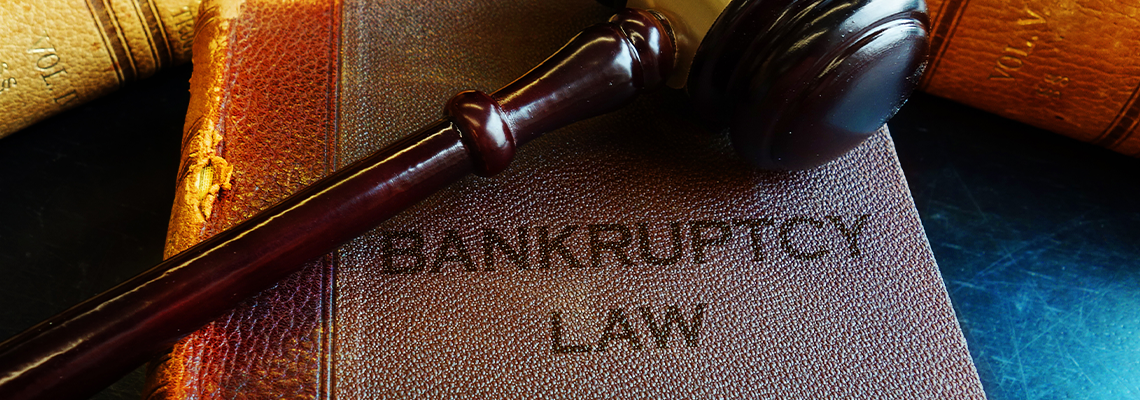
Which Chapter of Bankruptcy Should I File?
According to the United States Bankruptcy Court for the Southern District of California, there were a total of 6,293 bankruptcy filings in 2020, including all Chapter 7, Chapter 13, and Chapter 11 filings. If your financial situation has changed dramatically, whether because of problems caused by the pandemic or debts growing steadily over the years, bankruptcy may be the right option for you.
You can improve your credit score after filing for bankruptcy and still be approved for a place to live. The Orantes Law Firm can help you find out if filing for bankruptcy would help your financial situation and which chapter of bankruptcy would be best for your case. We believe in providing personalized attention and work hard to help individuals achieve fresh financial starts. The Orantes Law Firm serves clients in Los Angeles County, Orange County, and the surrounding areas.
Chapter 7 Bankruptcy
A Chapter 7 bankruptcy is the simplest and quickest form of bankruptcy. It will immediately stop issues like creditor harassment and provide a clean slate for your finances.
Most people with serious debt are eligible for Chapter 7 bankruptcy. If your average monthly income over the past six months is below the California adjusted median income, then you are automatically eligible to file for Chapter 7 bankruptcy.
However, if your income is above the California median income, you may still be eligible. Our firm can conduct a secondary means test to determine your ability to pay your debts.
Chapter 7 can stop creditor harassment so you don’t have to worry about threatening letters or phone calls any longer. Also, credit card debt is 100% dischargeable under Chapter 7 bankruptcy. It will also discharge medical debt and payday loans and stop auto repossession and wage garnishment. Chapter 7 bankruptcy can give you a fresh financial start in about six months. Chapter 7 bankruptcy cannot discharge student loan debt, except for in extreme cases.
Chapter 7 is a good option for people who make an average income, have significant debts, want to put an immediate stop to creditor harassment, and are looking for a fresh financial start.
Chapter 13 Bankruptcy
Filing for Chapter 13 bankruptcy is essentially agreeing to create a three- to five-year repayment plan to discharge your debts. It differs from Chapter 7 bankruptcy in this way.
If you earn a significant income and you want to protect valuable property, you may qualify to file for Chapter 13 bankruptcy. Your debts cannot be greater than $1,184,200 in secured debt and $394,725 in unsecured debt.
You can discharge up to $360,475 of debt when you file for Chapter 13 bankruptcy. You may pay a very small percentage of your income to your creditors, and you’ll still get relief from your debts. With a Chapter 13 bankruptcy, you may be able to save your home from foreclosure and reschedule secured debts.
If the bank or mortgage company has begun foreclosure proceedings, you may still lose your home. If the mortgage company completes the foreclosure sale under state law before the debtor files the petition, then that means you may lose your home.
If foreclosure proceedings have not already started, Chapter 13 is a good option for people whose homes are at risk of or under foreclosure. It allows individuals to reschedule secured debts (besides the mortgage for their home).
Chapter 13 bankruptcy may protect co-signers of consumer debts. It’s also a great option because individuals will have no direct contact with creditors while under Chapter 13 protection.
Chapter 11 Bankruptcy
Chapter 11 bankruptcy allows businesses (and individuals) with significant debt and significant assets to put together a debt reorganization and repayment plan.
You must have gone through approved credit counseling within 180 days before filing, except in certain rare cases, to qualify for Chapter 11 bankruptcy. Also, if you have not had a bankruptcy petition dismissed in the past 180 days due to your failure to appear before the court or to comply with the orders of the court, then you should be eligible for Chapter 11 bankruptcy.
Chapter 11 bankruptcy provides protection from adverse creditor actions, including repossessions and lawsuits. It also gives you the opportunity to turn the page and start a new chapter in your financial life.
There is not always an appointed trustee in a Chapter 11 bankruptcy, but there is always one in a Chapter 13 bankruptcy. A Chapter 11 bankruptcy does not immediately solve all your financial problems, but it helps you reorganize your debt.
Chapter 11 is a good option when it is possible to repay your creditors under different circumstances than the terms that are currently laid out. It is difficult to know for sure if Chapter 11, Chapter 13, or Chapter 7 bankruptcy would be best for you without consulting a California bankruptcy attorney.
Hiring an Experienced Bankruptcy Attorney
Bankruptcy is not the end of the road. It’s a new beginning that can help you decrease the stress in your life now by reorganizing your debt. At The Orantes Law Firm, we can help you decide which type of bankruptcy would be best to file in your situation. We will be with you every step of the way. We’re proud to serve clients in Los Angeles County, Orange County, Los Angeles, and Irvine. Contact us today to schedule your free consultation and start a new chapter in your financial life.
